About
The Biosensors for bioengineering group is a senior group under ICREA’s Tenure Track scheme.
Organs-on-a-chip (OOC) refers to a technology that involves creating microscale devices that mimic the structure and function of human organs. These “chips” are typically composed of living cells arranged on a microfluidic platform, allowing researchers to simulate the complex interactions and physiological responses within a specific organ.
The goal of Organs-on-a-chip (OOC) technology is to provide a more accurate and representative model of human organs compared to traditional in vitro cell cultures or animal testing. By replicating the microenvironment of organs and incorporating various cell types, organs-on-a-chip can help researchers study the effects of drugs, toxins, and diseases in a more realistic and controlled manner.
Each organ-on-a-chip device is designed to replicate the unique characteristics of a particular organ, such as the liver, pancreas or skeletal muscle. These miniature systems enable researchers to observe and analyze how different substances and conditions affect cellular behavior, tissue function, and overall organ responses. The technology holds promise for drug development, disease modeling, and toxicology studies, offering a more ethical and efficient alternative to traditional methods.
Our research on OOC development has clear goals. We want OOC platforms to be easy to use and more automation to set up cell cultures. This will help more people use them, making experiments quicker and more reliable.
We’re working on creating a simple platform for growing microtissues in 3D. This makes OOC research easier to use in the real world, moving from lab tests to practical applications. We also want to improve the user experience by making OOC platforms more friendly, compatible, and ready for use.
As OOC research moves from labs to real-world use, we want to help users deal with biological challenges. We’re developing an easy-to-use 3D tissue platform and a simple bioreactor that works with sensing technology. This helps users focus on solving biological problems, validating models, and finding potential medicines. We’re also adding sensors to make the bioreactor even more effective.
Our efforts make it easier for researchers to study how organs interact. Our second goal focuses on studying more complex disease models. This helps us understand diseases better and find ways to treat them. We believe that OOCs help in three main ways: understanding diseases, making better medicines faster, and supporting personalized research using cells from individual patients. OOCs can be a solution for studying rare diseases where other methods are not available.
Our third goal is to standardize OOC platforms, making them work together better. This involves creating common rules and standards for everyone to follow. This makes collaboration and sharing information easier.
Finally, our lab is working towards making OOCs suitable for high-throughput screening. This means making them simpler and adding good models for studying diseases. In short, we’re making OOC development more user-friendly, accessible, and technologically advanced. This simplification helps in biological research and finding new medical solutions.
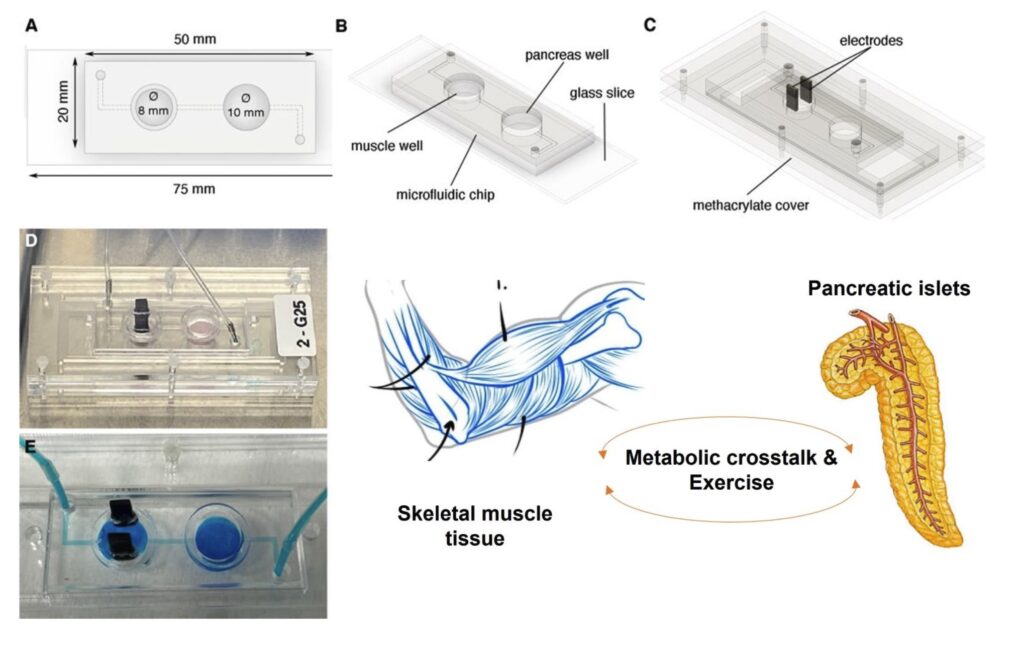
Staff
Javier Ramón Azcón
Projects
| NATIONAL PROJECTS | FINANCER | PI |
|---|---|---|
| Development of a “Muscle-on-a-Chip” (MoC) platform for the preclinical evaluation of potential therapies for Duchenne muscular dystrophy (2020-2022) | DUCHENNE ESPAÑA, IV Convocatoria Ayudas a Proyectos de Investigación | Juanma Fernandez |
| BLAD · BioLiver Assist Device (2020-2021) | AGAUR, Ajuts per a projectes innovadors amb potencial d’incorporació al sector productiu – LLAVOR | Javier Ramón |
| INNOTEC- Javier Ramon- Naturfiltr (2021-2023) | TECNIO | Javier Ramón |
| ASITOC Atomic-Sensor-Integrated Tissue-On-a-Chip: optically detected biomagnetism to understand muscular diseases (2021-2022) | BIST_Barcelona Institute of Science and Technology | Juanma Fernandez |
| INTERNATIONAL PROJECTS | FINANCER | PI |
|---|---|---|
| DAMOC · ‘Diabetes Approach by Multi-Organ-on-a-Chip’ (2017-2022) | ERC | Javier Ramón |
| BLOC · Benchtop NMR for Lab-on-Chip (2020-2022) | European Comission FET-Open | Javier Ramón |
| PRIVATELY FUNDED PROJECTS | FINANCER | PI |
|---|---|---|
| Tatami · Therapeutic targeting of MBNL microRNAs as innovative treatments for myotonic dystrophy (2019-2022) | Fundació bancaria “La Caixa” | Javier Ramón |
| FINISHED PROJECTS | FINANCER | PI |
|---|---|---|
| Programa Faster Future 2020: COVID-19 (2021) | Fundraising | Javier Ramón |
| INDUCT · Fabrication of a biomimetic in vitro model of the intestinal tube muscle wall: smooth muscle-on-a-chip (2018-2020) | MINECO | Javier Ramón |
Publications
(See full publication list in ORCID)
[br]
Equipment
Micro and nanofabrication techniques:
- 3D microstructures on hydrogel materials
- Mini-bioreactor for 3D cell culture
- Microelectrodes fabrication
- Synthesis and chemical modification of polymers and surfaces
- Dielectrophoretic cells and micro particles manipulation
Characterization techniques:
- Optical Microscopes (white light/epifluorescence)
- Electrochemical techniques (Potentiometric/Amperometric/Impedance spectroscopy)
- Immunosensing techniques (Fluorescence ELISA/Colorimetric ELISA/magneto ELISA)
Equipment:
- Microfluidic systems (High precision syringe pumps/Peristaltic pumps/Micro valves)
- Biological safety cabinet (class II)
- Epifluorescence microscope for live-cell imaging
- Pulsar – a high-resolution, 60MHz benchtop NMR spectrometer from Oxford Instruments
Access to the Nanotechnology Platform (IBEC Core Facilities): equipment for hot embossing lithography, polymer processing and photolithography, chemical wet etching, e-beam evaporation and surface characterization (TOF-SIMS)
Access to the Scientific and Technological Centers (University of Barcelona): equipment for surface analysis (XPS, AFM, XRD), organic structures characterization (NMR) and microscopy techniques (SEM, TEM, confocal)
Collaborations
We collaborated closely with Professor Ruben Artero from Instituto de Investigaciones Clínicas de Valencia (INCLIVA) and medical doctor Vilchez from Hospital de la Fe (Valencia). We develop muscle-on-a-chip devices using 3D tissue cultures and biosensors. During my career, I established national and international collaborations with other researchers, clinicians, and companies. This is reflected by the fact that I attracted competitive funding awarded by the prestigious entity Medical Research Council (UK), focused on studying Duchenne’s rare disease. I also collaborate on projects with more clinical groups and hospitals, e.g., Hospital de Sant Pau (Barcelona). With senior professor Eduard Gallardo’s group, we are developing human microtissues to study the myasthenia gravis neuromuscular rare disease.
Following the translational nature of my research, I recently became the entrepreneurial scientist of a valorisation project financed by Producte Call (AGAUR) to bring to the market plasmonic biosensors for Myasthenia Gravis diagnosis. I actively collaborate with patient associations such as “Duchenne Parent Project ” and “Asociación Conquistando Escalones,” and with national and international companies such as Arthex biotech, SOM biotech, BI/OND (The Netherlands), and BioEmTech (Greece). I have also established contacts with the industry to develop new technology with a high impact on clinical diagnosis and drug development. Specifically, we collaborate with Grifols (Spain), Multivawe (Switzerland), Oxford Instrument (UK) and NovoNordisk (Denmark). This last collaboration aims to develop new biomaterials for cell therapies. I have also established contacts with the industry to develop new technology with a high impact on clinical diagnosis and drug development, specifically collaborating with Multiwave (Switzerland) and Oxford Instrument (United Kingdom). I am also co-founder of a spin-off company, Vitala.
News
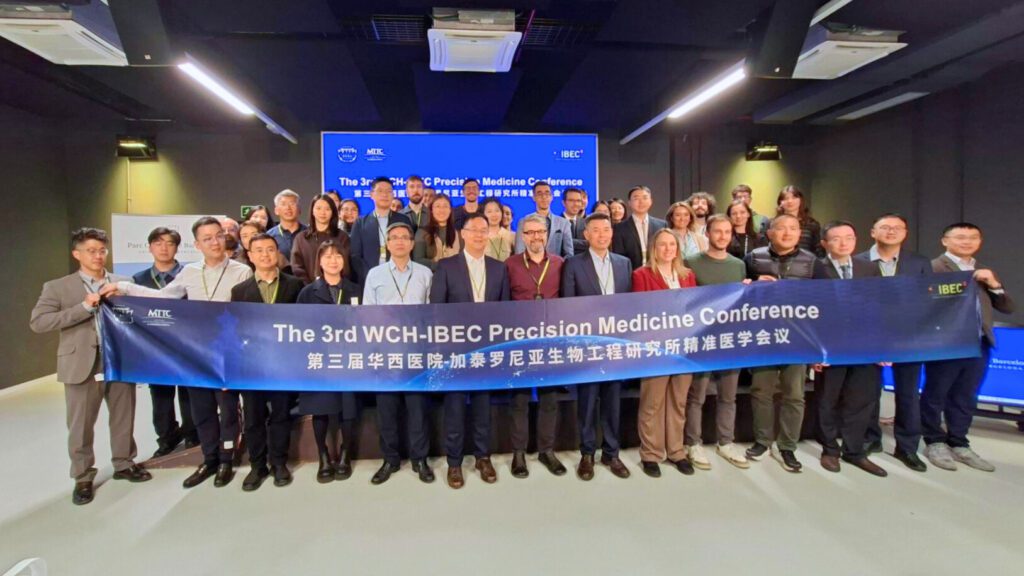
L’IBEC i l’Hospital West China celebren a Barcelona la seva tercera Conferència conjunta de Medicina de Precisió
Aquesta setmana ha tingut lloc a Barcelona la tercera Conferència de Medicina de Precisió IBEC-WCH, una trobada que va consolidar l’aliança estratègica entre l’Institut de Bioenginyeria de Catalunya (IBEC) i l’Hospital West China de la Universitat de Sichuan (WCHSU). La delegació xinesa va visitar Espanya del 26 al 29 de novembre, participant en un programa intensiu d’activitats científiques, institucionals i d’intercanvi entre tots dos centres.
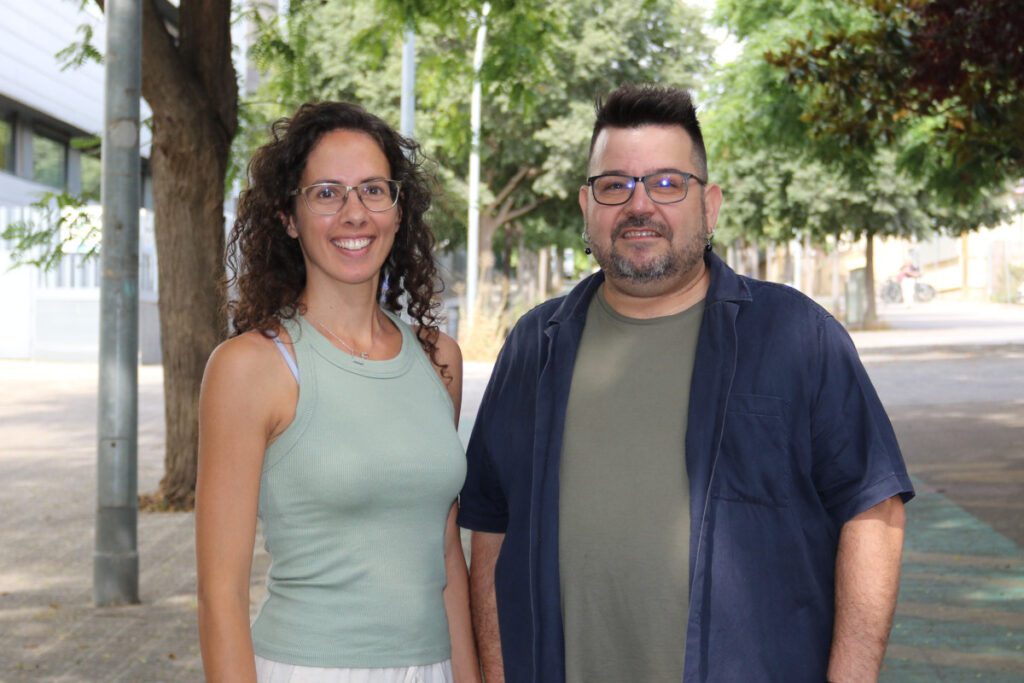
El projecte Fibrosens rep finançament de l’AFM-Telethon per desenvolupar sensors per a la distròfia muscular
L’investigador de l’IBEC Juanma Fernández ha rebut recentment finançament de l’AFM-Telethon francesa per dur a terme el projecte “Monitoratge de processos fibròtics en cocultius de múscul esquelètic 3D per a Distròfies Musculars utilitzant biosensors plasmònics”. L’objectiu és desenvolupar dispositius amb sensors de multiplexació molecular per aconseguir la capacitat de detecció en línia i en temps real per monitorar els marcadors de fibrosi i avaluar la resposta als medicaments en models de distròfia muscular in vitro.
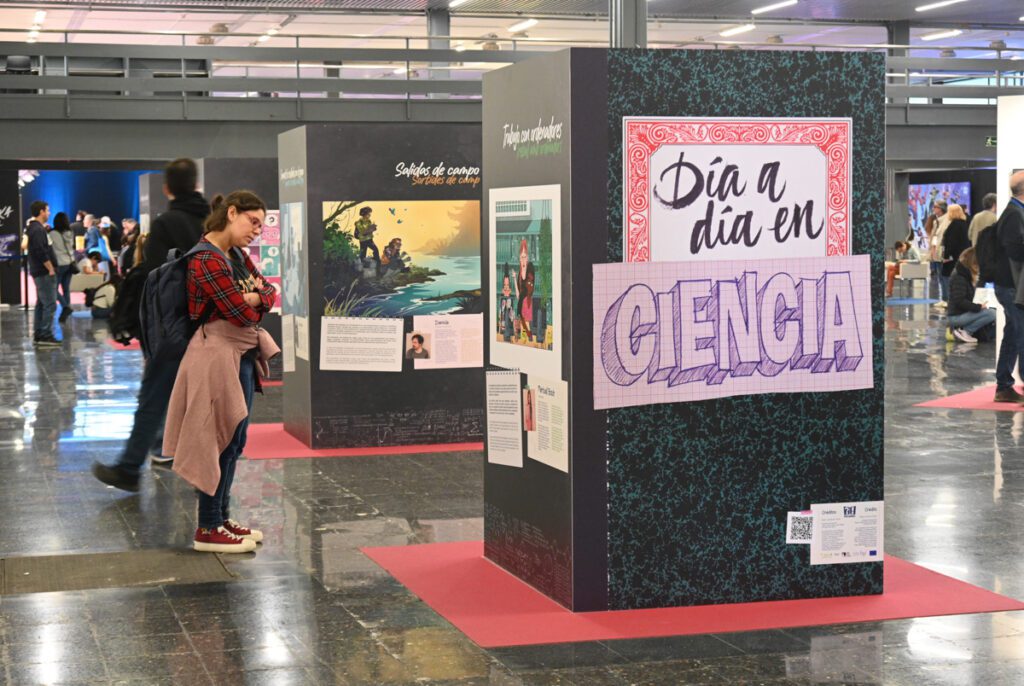
La ciència de l’IBEC arriba a milers de persones al 43è Comic Barcelona
L’Institut de Bioenginyeria de Catalunya (IBEC) va tenir una presència destacada la passada setmana a la 43a edició de Comic Barcelona. A través d’una exposició sobre el dia a dia en ciència, xerrades i tallers divulgatius, l’IBEC va poder apropar la seva recerca de frontera a públics de totes les edats.
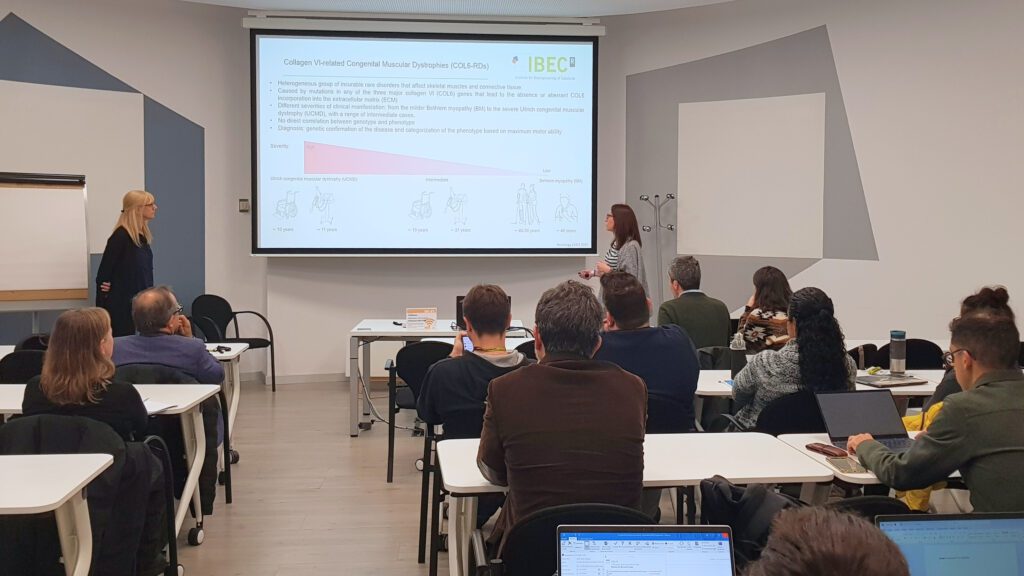
L’IBEC i l’Hospital Sant Joan de Déu reforcen la seva col·laboració amb una jornada d’innovació translacional
L’Institut de Bioenginyeria de Catalunya i l’Hospital Sant Joan de Déu han celebrat una jornada conjunta per impulsar col·laboracions en bioenginyeria i medicina translacional. L’esdeveniment, realitzat aquest matí a l’IBEC, va posar en relleu projectes innovadors, va presentar un programa de doctorat conjunt i va fomentar l’intercanvi d’idees entre investigadors d’ambdues institucions.
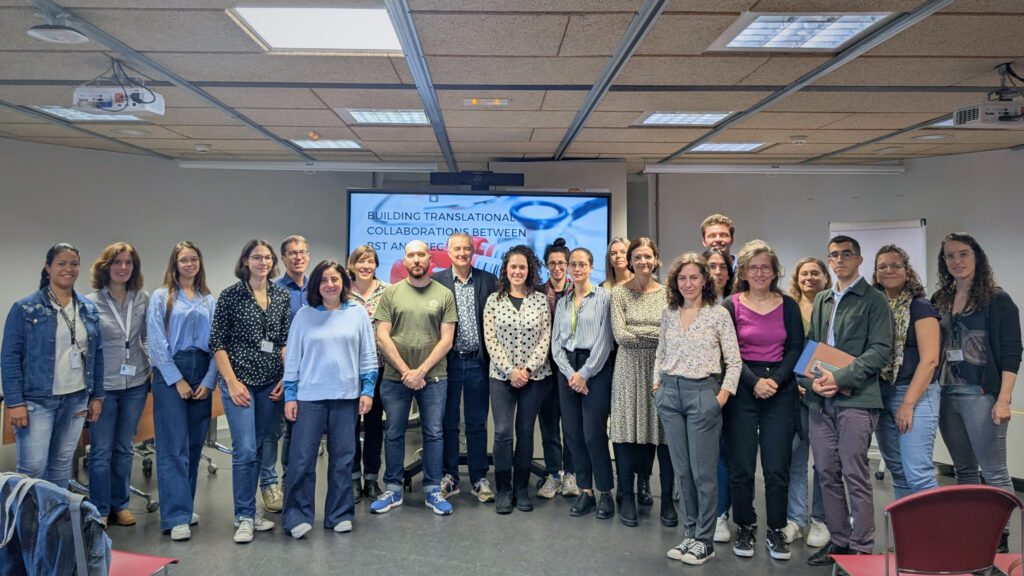
L’IBEC i el Banc de Sang i Teixits enforteixen llaços amb una jornada de col·laboració translacional
L’IBEC i el Banc de Sang i Teixits han celebrat una jornada per explorar noves col·laboracions en bioenginyeria i medicina translacional. La trobada, celebrada ahir a l’IBEC, va destacar projectes innovadors, va presentar un programa de doctorat conjunt i va reforçar la connexió entre recerca biomèdica i aplicacions clíniques.
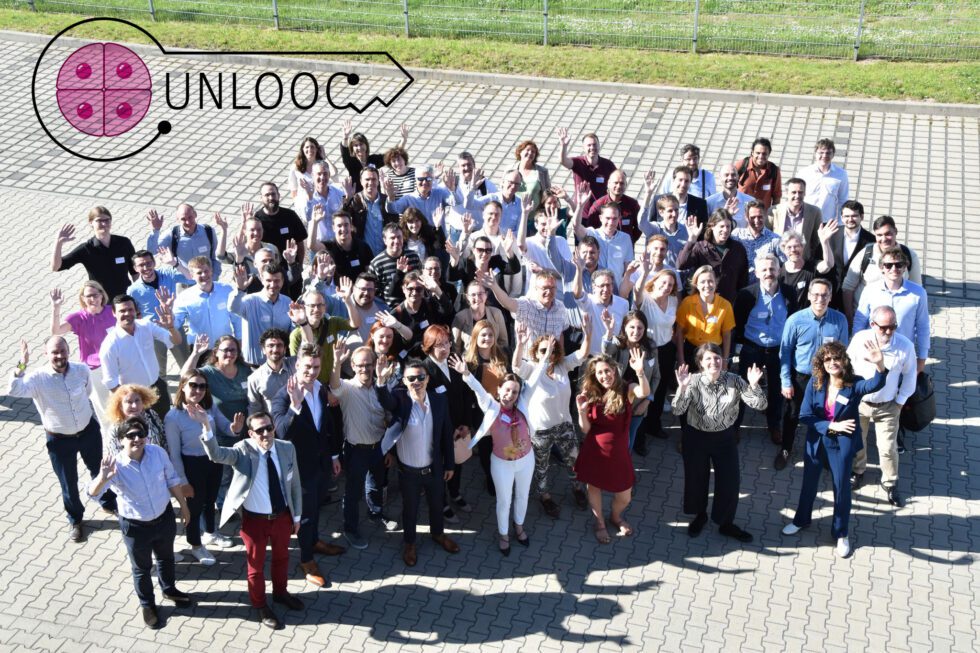
Òrgans en un xip per reduir els assajos en animals
L’IBEC és un dels socis de l’ambiciós projecte europeu UNLOOC, una col·laboració publicoprivada que involucra 51 organitzacions de 10 països i que compta amb un pressupost de 68 milions d’euros. Aquest consorci busca desenvolupar tecnologies d’òrgans en un xip per reduir l’ús d’animals en el desenvolupament i assaig de fàrmacs, a més de millorar la precisió i personalització dels tractaments mèdics.
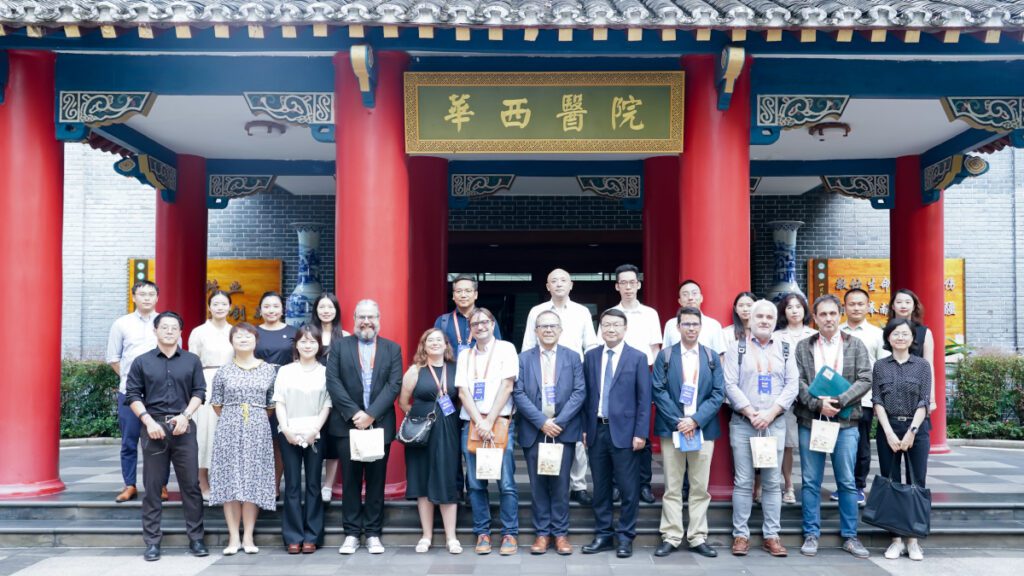
L’IBEC i l’Hospital West China reforcen la seva col·laboració en medicina de precisió
La setmana passada es va celebrar a Chengdu, Xina, la segona Conferència de Medicina de Precisió IBEC-WCH. Es tracta d’una aliança entre l’Institut de Bioenginyeria de Catalunya (IBEC) i l’Hospital West China (WCH) de la Universitat de Sichuan, que busca impulsar la col·laboració científica entre tots dos països.
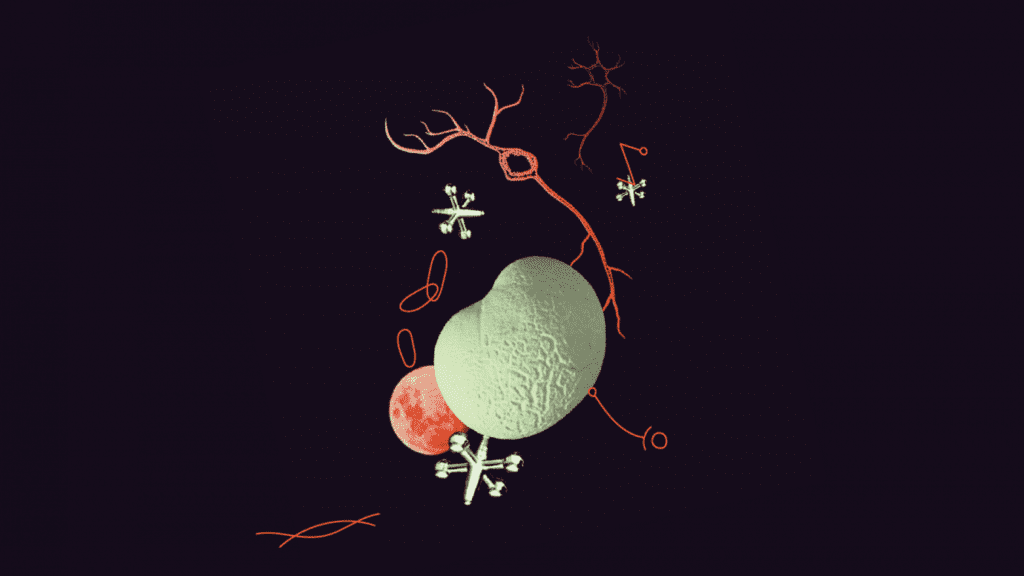
Dos projectes amb participació de l’IBEC seleccionats en la convocatòria de xarxes de doctorat MSCA
L’IBEC coordinarà SPM4.0 i participarà com a soci en ENTRY-DM, dos dels projectes seleccionats en la convocatòria 2023 de xarxes de doctorat dins del marc de les Accions Marie Skłodowska-Curie (MSCA). Gràcies a aquests dos projectes, l’IBEC incorporarà tres nous doctorands a la seva plantilla.
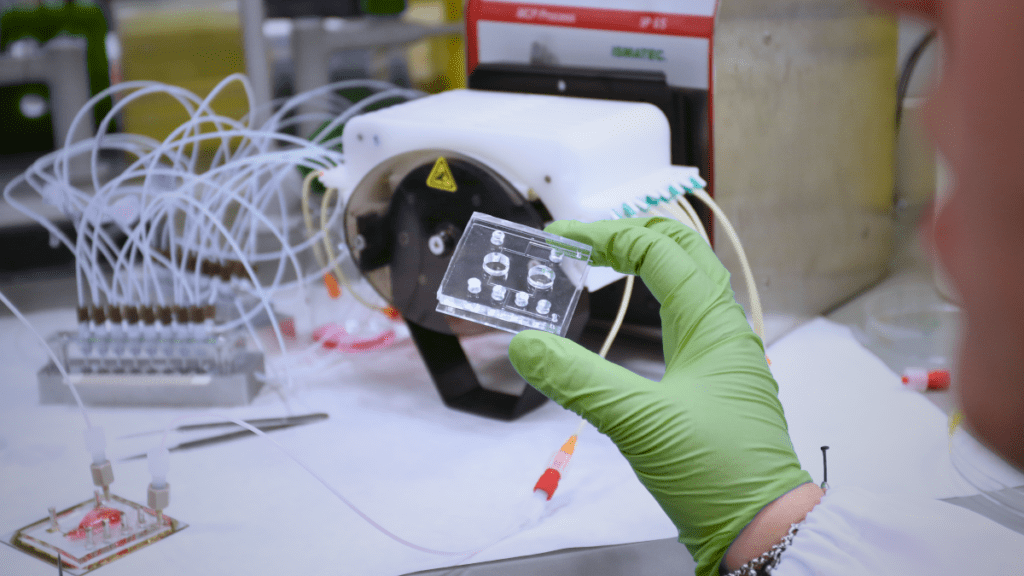
L’IBEC desenvoluparà òrgans en un xip en tres projectes Pathfinder
BuonMarrow, OMICSENS i PHOENIX-OoC són els tres projectes en els quals el Grup de Biosensors per a la Bioenginyeria de l’IBEC desplegarà el seu ampli coneixement en l’àmbit de biosensors i òrgans en xip. Els projectes, que es desenvoluparan amb el finançament del prestigiós programa Pathfinder Open del Consell d’Innovació Europeu, prometen millorar els tractaments oncològics i impulsar la innovació en diagnòstics.
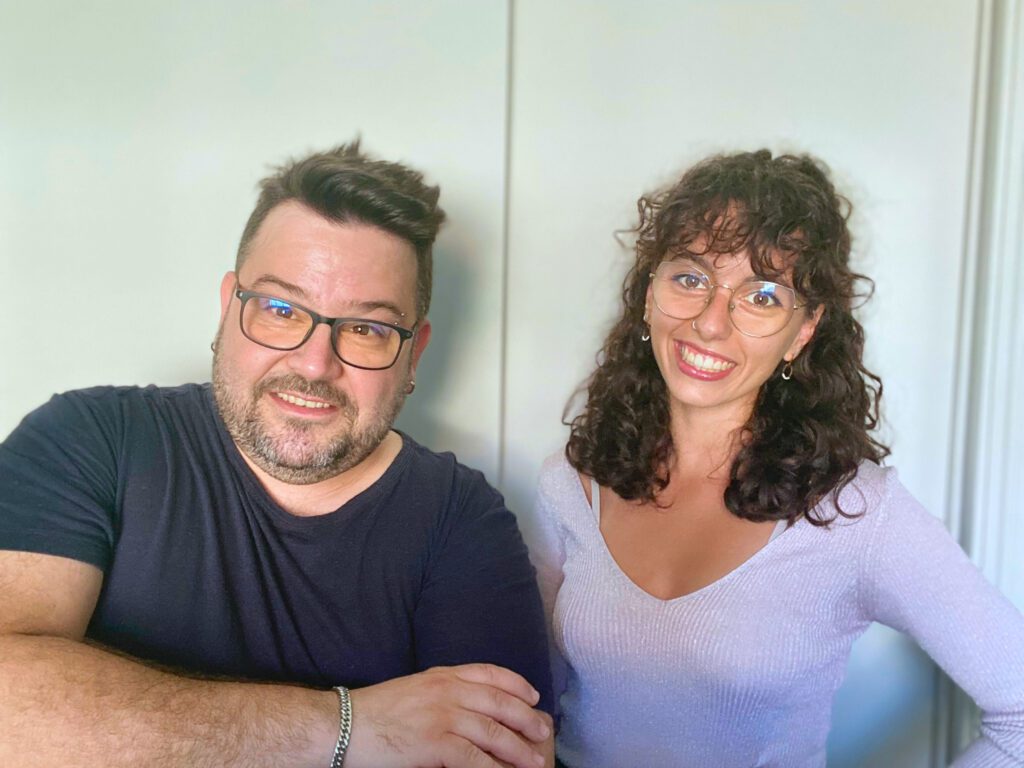
Un múscul artificial per estudiar la distròfia muscular de Duchenne
El sistema, desenvolupat per l’IBEC, està fabricat a partir de cèl·lules de pacients i és el primer model 3D de múscul capaç de reproduir el dany que provoca la distròfia muscular de Duchenne. El següent pas serà fabricar una plataforma d’ òrgan-en-un-xip que permeti dur a terme estudis preclínics de fàrmacs contra la malaltia i monitorar el dany muscular de manera més eficient. El treball ha rebut finançament de Duchenne Parent Project Espanya, una associació sense ànim de lucre dirigida per les famílies de nens afectats per aquest tipus de distròfia.
Jobs
Research Assistant at the Biosensors for Bioengineering Research Group
Ref: RA-JR // Deadline: 05/12/2025
Research Assistant at the Biosensors for Bioengineering Research Group
Ref: JR_RA // Deadline: 24/11/2025
Laboratory Assistant position at the Biosensors for Bioengineering Research Group
Ref: LA-JR // Deadline: 22/10/2025
Laboratory Assistant at the Biosensors for Bioengineering Research Group
Ref: LA-JR // Deadline: 15/10/2025
Researcher Training position at the Biosensors for Bioengineering Research Group
Ref: RT_JR // Deadline: 15/08/2025
Researcher in Training at the Biosensors for Bioengineering Research Group
Ref: RT_JR //Deadline: 07/02/2025
Laboratory Technician at the Biosensors and Bioengineering Research Group
Ref: LT_jr//Deadline: 18/11/2024
Research Assistant position at the Biosensors for Bioengineering Research Group
Ref: RA- JR // Deadline: 23/09/2024
Research Assistant position at the Biosensors for Bioengineering Research Group
Ref: RA- JR-2 // Deadline: 21/08/2024
Research Assistant at the Biosensors for Bioengineering Research Group
Ref: RA-JR-1 // Deadline: 29/08/2024

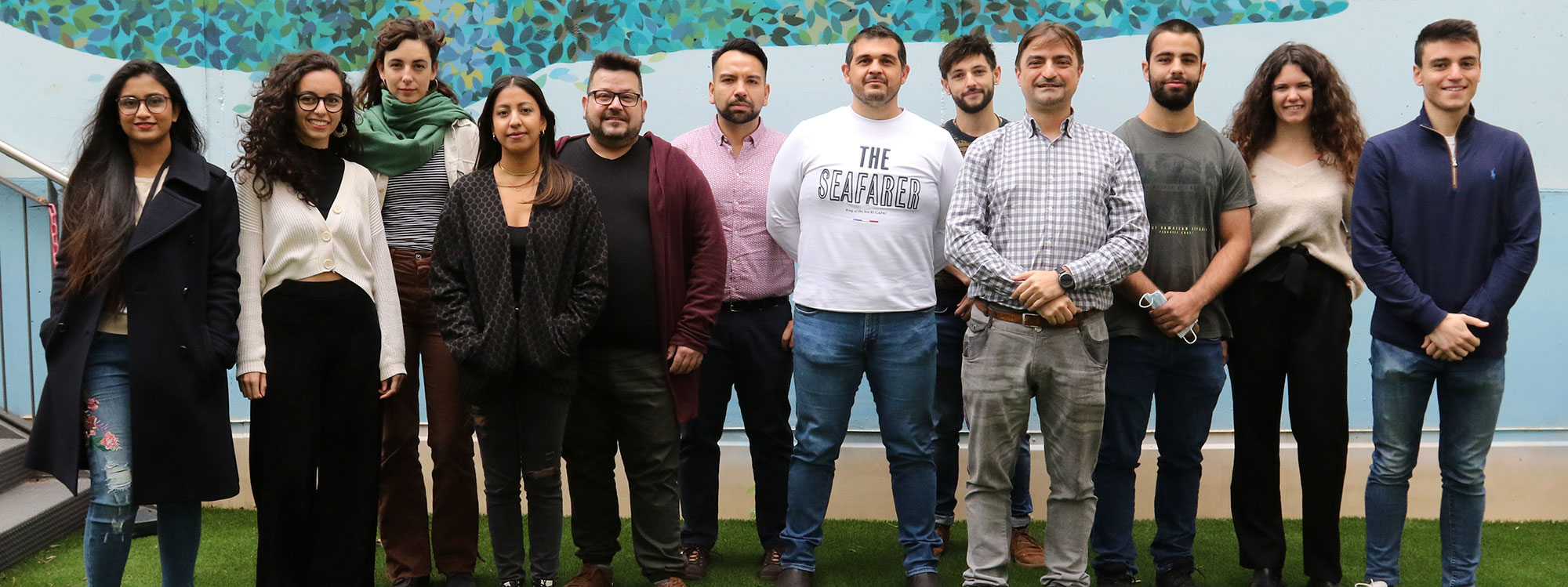
 ibecbarcelona.eu
ibecbarcelona.eu